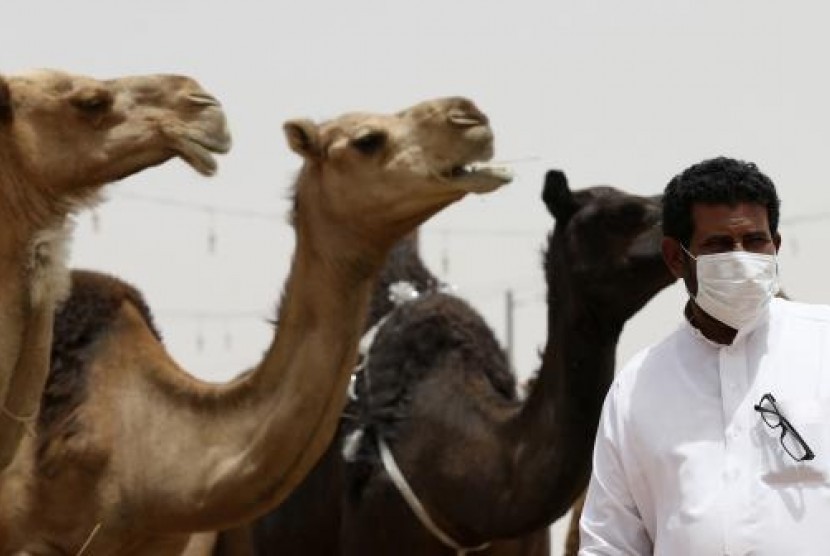REPUBLIKA.CO.ID, LONDON - A Saudi man who became infected with and died of the new Middle East Respiratory Syndrome (MERS) virus contracted the disease from a camel in his own herd which was also sick, scientists said on Wednesday.
In a study which reinforces the case against camels as the prime suspects for transmitting the deadly virus from the animal world into people, researchers said that in this case it was highly likely the animal's nasal secretions were to blame. MERS, also known as MERS-CoV, has infected 691 people and killed at least 284 of them in Saudi Arabia alone since it first emerged in 2012.
Sporadic cases of the disease, which is caused by a virus from the same family as Severe Acute Respiratory Syndrome or SARS, have also been reported across the Middle East region, as well as in Europe, Asia and the United States.
Documenting the case of a 44-year-old previously healthy Saudi man who died of MERS on November 18, 2013, Saudi scientists led by Tariq Madani said their analysis suggested a so-called zoonotic event - when a virus circulating in animals makes a jump into the human population.
"The patient had applied a topical medicine in the nose of one of the ill camels seven days before onset of the patient's illness," they wrote in the study in the New England Journal of Medicine.
Genetic analysis of samples taken from the victim and from the camel in question - a one-humped or dromedary camel in a herd of nine owned by the patient - suggested the virus had passed directly from the animal to the man, they concluded. Infectious disease experts not directly involved in the study said its findings added to a growing body of evidence that camels are a likely source of the outbreak.
"This is a further strengthening of the case for camels being an immediate source of human MERS infection," said
Ian Jones, a professor of virology at Britain's University of Reading.
"It supports what we thought was going on - i.e. (that)MERS-CoV transmits from camels to humans...rather than the other way around," said Jake Dunning of the center for respiratory infection at Imperial College London.


